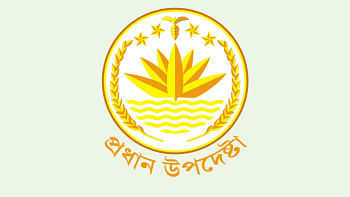Bangladeshi girl tweets Modi over banned rupees
For a year and a half, Aruna secretly saved the rupees customers tipped her with at the Indian brothel she was sold into, assuming she could one day exchange the banknotes when she returned home to Bangladesh.
Urgent appeal from a Bangladeshi girl. Sir @narendramodi ji , @SushmaSwaraj ji seeking your intervention ASAP. pic.twitter.com/MqT4NQs4o5
— Rescue Foundation (@ResQ_Foundation) May 3, 2017
But after being rescued from a brothel in the west Indian city of Pune, she learned that her stash of 500- and 1,000-rupee banknotes - totalling 10,000 rupees ($155) - were worthless because Prime Minister Narendra Modi had banned those banknotes last November in an effort to crack down on corruption.
So with help from the organisation that freed her, Aruna filed a grievance to Modi himself, via Twitter.
"I used to hide this money from the brothel keeper in my pants pocket as I wanted to take it home," Aruna wrote in a letter tweeted to Modi late on Tuesday from the Twitter handle of the Mumbai-based Rescue Foundation.
"I earned this money through much suffering. This money is precious. Please help me exchange it," she wrote.
India's shock currency move to withdraw its two highest banknotes aimed to bring billions of dollars of unaccounted wealth that people are hoarding, or "black money", into the mainstream economy and curb corruption.
But the demonetisation policy has left unintended victims like Aruna with nothing.
A former garment factory worker in Bangladesh, Aruna was trafficked to India by a coworker who promised her a well-paying job, but sold her soon after she crossed the border.
She worked at a brothel in Bangalore for a year and a half before being sold to another in Pune, where she was rescued a day after arriving, in December 2015.
In March this year, Bangladesh issued her a travel permit to return home.
Aruna is one of 19 trafficking survivors who on May 15 will board a train in Pune and travel about 1,800 km to eastern India, where a police bus will take them across the border to Bangladesh.
But unless her money is exchanged, she will go home penniless.
"The money would lend some legitimacy to her absence from home. She will be able to tell her family that she was working in India," said Tanuja Pawar, assistant superintendent of the Rescue Foundation shelter in Pune where Aruna stays.
Pawar told the Thomson Reuters Foundation that following the note ban announcement last year, the rescued women's cash savings were exchanged into new banknotes.
But Aruna told Pawar about the money in her trunk that was still at the brothel after she got her travel permit.
Activists say trafficking victims often withhold information as they are brainwashed to believe their rescuers would harm them or take away their money.
Police helped retrieve the trunk, and the money was there, but invalid.
There has been no official response from the prime minister to Aruna's letter, Rescue Foundation officials said, and Modi's office did not immediately respond to requests for comment.
In the meantime, many people have come forward to give her money to take back home after her tweet.

 For all latest news, follow The Daily Star's Google News channel.
For all latest news, follow The Daily Star's Google News channel. 








Comments